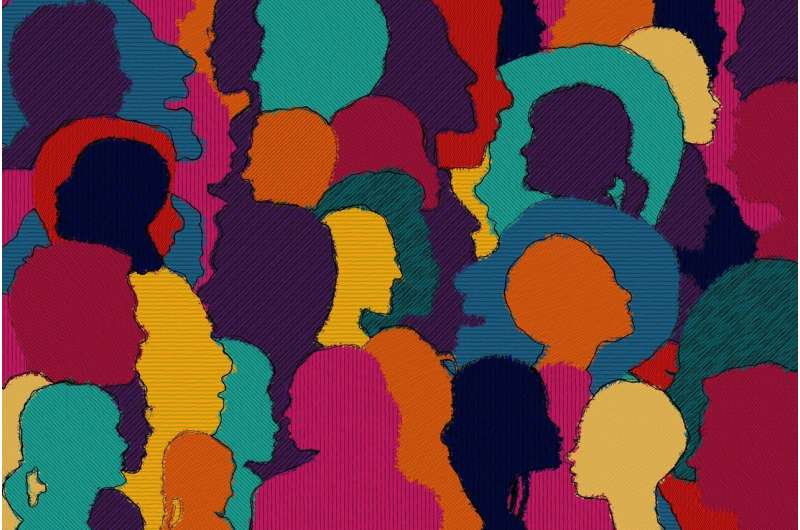Credit: Pixabay/CC0 Public Domain
A team of researchers from Harvard University and Boston University has found evidence showing that white boys who grew up with Black neighbors are more likely to be registered as Democrats as adults. In their paper published in the journal Science Advances, the group describes comparing data from the 1940 Census to voter rolls many years later.
Over the past several decades, social scientists have carried out many studies to determine whether people feel less negativity to those of other races if they spend more time with them. But as the researchers with this new effort note, such studies have typically involved very short periods of time, which put their results in doubt. In this new effort, the researchers looked for a more long-term way to measure the impact of people with different skin color living in close proximity.
They found that the 1940 U.S. Census in the U.S. provided valuable information. They noted that in addition to counting approximately 99% of the people living in the U.S. that year, the census takers had also included data on age, gender and race. And because the survey was conducted by people walking door-to-door, the data indicated neighboring houses—they appeared right next to each other in the count. In this way, the researchers were able to isolate white families who lived next door to Black families. They then assumed that people who lived next door to one another would interact on a regular basis.
The researchers then looked for a means to measure the racial attitudes of the boys who had grown up in such homes much later in life—girls were not included because they tend to change their last name when they marry, making it difficult to track them. The researchers chose voter registration as a simple test because prior research has shown that people registered as Democrats tend to view people of other races more tolerably than those registered as Republicans—and because voter rolls are open to the public.
In comparing white boys who had grown up next door to a Black family, the researchers found that they were 1.5 to 4.2 times as likely to be registered many years later as Democrats than white boys who grew up next to white neighbors, according to voter roll data from 2005 and 2009. The numbers grew to 2.8 to 5.3 when using data from 2017.
More information: Jacob R. Brown et al, Childhood cross-ethnic exposure predicts political behavior seven decades later: Evidence from linked administrative data, Science Advances (2021). DOI: 10.1126/sciadv.abe8432
Journal information: Science Advances
© 2021 Science X Network
























